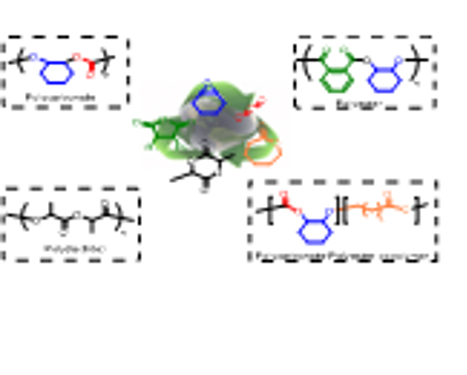
The research investigated using the Hub funding remains at an early stage as would be expected with EPSRC funded fundamental research. Nonetheless, the target area – making useful products from carbon dioxide, is one in which there is potential for both environmental and commercial impact. It is relevant to note that there is a UK based company, Econic technologies, formed on the basis of earlier catalytic science from C. K. Williams which has commercialized catalysts for carbon dioxide/epoxide copolymerization (http://www.econic-technologies.com). The product polycarbonate polyols are attracting increasing industrial attention as components in polyurethanes, a large commodity sector of the polymer market. Thus, the discoveries of the EPSRC Catalysis Hub funding are relevant to an emerging sector in both the polymer and polymerization catalysis sectors. There is also a demonstrated environmental benefit to using carbon dioxide to make polymers – in effect there is a ‘triple win’ as for every tonne of carbon dioxide used to make polymers, there is a three-tonne saving in CO2 emissions. This arises because the carbon dioxide replaces epoxide in the conventional process and thus by avoiding petrochemical useage there are emissions savings also. The early-stage research in catalysis funded by the UK Catalysis Hub has allowed a broader range of polymers to be prepared from CO2. This is important because in future equivalent cost and environmental benefits could be envisaged in sectors beyond polyurethanes. For example, some of the polymers prepared using the switchable catalysis show good elastomeric behaviour so may be suitable as replacements for commodity materials like SBS (styrene-butadiene-styrene).
Another impact area that has been developed thanks to the Catalysis Hub funding has been the outreach and demonstration of the concept to the general public. The Imperial College London/Oxford team have participated in two large-scale outreach activities – the imperial College London Festival which attracted >10,000 members of the public in May 2015 and 2016. The Williams team presented the science behind carbon dioxide to polymers, including demonstrating a Co2-emittting ‘factory’ (a shoe box loaded with dry-ice and water) which was very popular, especially with families. It allowed the public to imagine the way that carbon dioxide emissions may one day be able to be transformed into useful products. The festival was held over two days and the group also participated in a schools outreach event each year. Furthermore, Charlotte Williams has presented the carbon dioxide catalysis on the Radio 4 programme, ‘Costing the earth’ (http://www.bbc.co.uk/programmes/b081lkm1) which was broadcast in November 2016.




